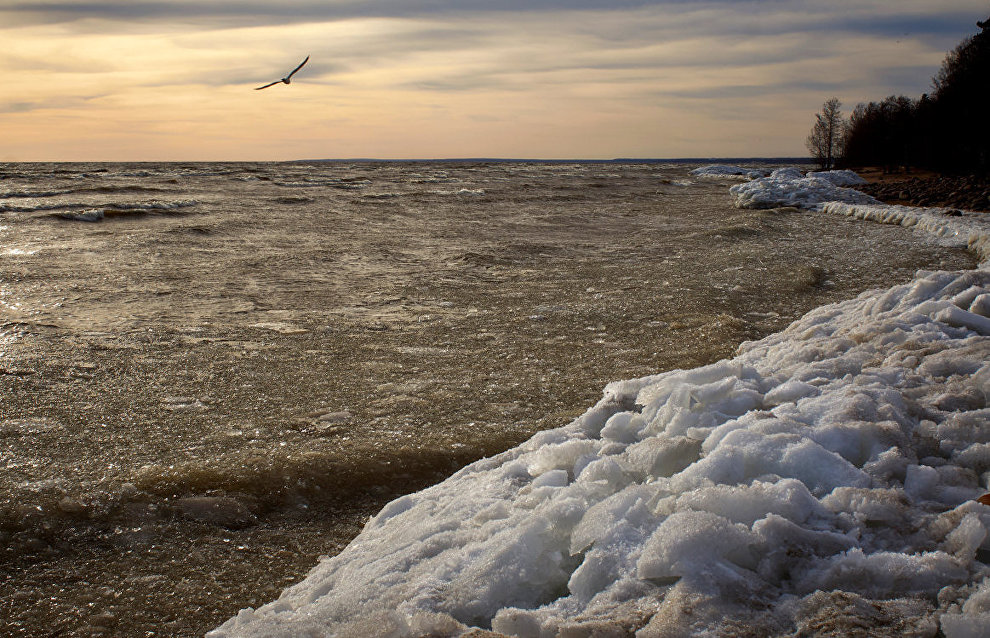Russia to send an environmental expedition to Hogland
There are 14 islands in the middle of the Gulf of Finland, 180 kilometers from St. Petersburg. Although some are too small to live on, the group is a strategic asset because it is in line with the stream channel on the way to the Neva River. Russia and Sweden fought several wars over these islands in the Middle Ages. These islands are associated with the trade route from the Varangians to the Greeks, which connected Scandinavia and the Byzantine Empire via Kievan Rus, the construction of St. Petersburg as the "window to Europe" under orders from Peter the Great, and the blockade of Leningrad (St. Petersburg) during WW II. The first SOS signal was transmitted from these islands, which are home to Stone Age labyrinths and the remains of Varangian settlements.
One of the islands Hogland, played a crucial role during the Great Patriotic War (1941-1945), part of WWII, providing shelter to about 12,000 people.
The outlying islands in the Gulf of Finland are not listed as travel destinations because they are closed to the public. However, the Russian Geographical Society's Expedition Center plans to clean the islands of the garbage and scrap metal that have accumulated there over the decades.
The next expedition is scheduled for May 17. According to organizers, the environmental task group will spend a month cleaning two islands — Hogland and Big Tyuters. The group members also hope to find WWII artefacts. Last year's expedition removed over 55 items of German military equipment that were abandoned during the German withdrawal from Big Tyuters and two other islands in 1944.
"This equipment has been rusting in the open air for 70 years, but in July last year a combined RGS-Russian Defense Ministry expedition found and moved it to one of its storehouses in the Leningrad Region," Kirill Khandin, the producer and co-author of the film, said before its screening. An exposition, ‘An Echo of the War' is to be presented this summer.
Application requirements
A nation-wide competition will be held to choose volunteers age 21 to 27. A group of at least 20 men will be sent to each island, working in two 14-day shifts. Women won't be accepted because it will be difficult manual labor under harsh weather conditions. Applications will be accepted from March 4 to April 8.
Artyom Khutorskoy, Deputy Director of the Expedition Center responsible for the expedition, said he can't say even tentatively how much scrap metal they will remove from the island this year because much will depend on the weather. Logistics support will be provided by the Leningrad Region government, which has promised to send boats and cranes.
"The War on the Cold Islands. Hogland Island"
The Expedition Center and the Zvezda TV network prepared a documentary in two parts titled, The War on the Cold Islands: Hogland Island. The first part presents the Soviet evacuation of Tallinn, also called the Tallinn disaster, and the fate of some of its participants. In late 1941, people were evacuated to Hogland Island from a naval base in Tallinn. A screening of this part of the film was organized for journalists on March 31, 2016. The film will be shown on a national television channel and is composed almost entirely of archive shorts with comments from the events' participants.
Kirill Khandin said it took them about six months to shoot the film, some of that time spent on finding the surviving veterans. One of them dropped in to see an RGS exhibit and told its organizers that he helped evacuate people in August 1941. Not surprisingly, the 92-year-old veteran was immediately recruited to take part in the film.
"Descriptions from a participant in events we're studying 70 years later are invaluable. And it's the best possible tribute to these people, because it's impossible to imagine, let alone understand how they did it," Artyom Khutorsky said.
He said the RGS Expedition Center was receiving many applications, which means that Russians are becoming interested in the history of the islands. Those who are selected for the environmental task group will be able to learn more about them.
